Abstract
In the first experiment, after establishing baseline composition rates in each classroom, timing (announcing time limits) and feedback (student self-scoring) were introduced followed by the introduction, removal, and reintroduction of public posting of highest scores. Timing and feedback improved story writing performance and public posting of highest scores improved performance even further in both classrooms. Teacher praise produced further improvement in one classroom but had no effect on performance in the other. Changes in on-task behavior paralleled changes in writing rate. Comments made by children concerning their own work or work of their peers were recorded throughout the experiment. Although the baseline rate of performance comments was almost zero, the introduction of each variable markedly increased the rate of performance comments. In the second experiment, baseline rates on reading and language exercises were established in a fifth-grade classroom. The entire performance feedback system was introduced on a multiple baseline across the two behaviors and then removed during the final phase of the experiment. Introducing the system improved performance on both tasks. These results further increased the generality of some of the findings of the previous experiment and of previous research on the efficacy of the experimental package of timing, feedback, public posting, and praise.
Keywords: feedback, public posting, time limits, writing rates, academic performance, classroom research, self monitoring
Full text
PDF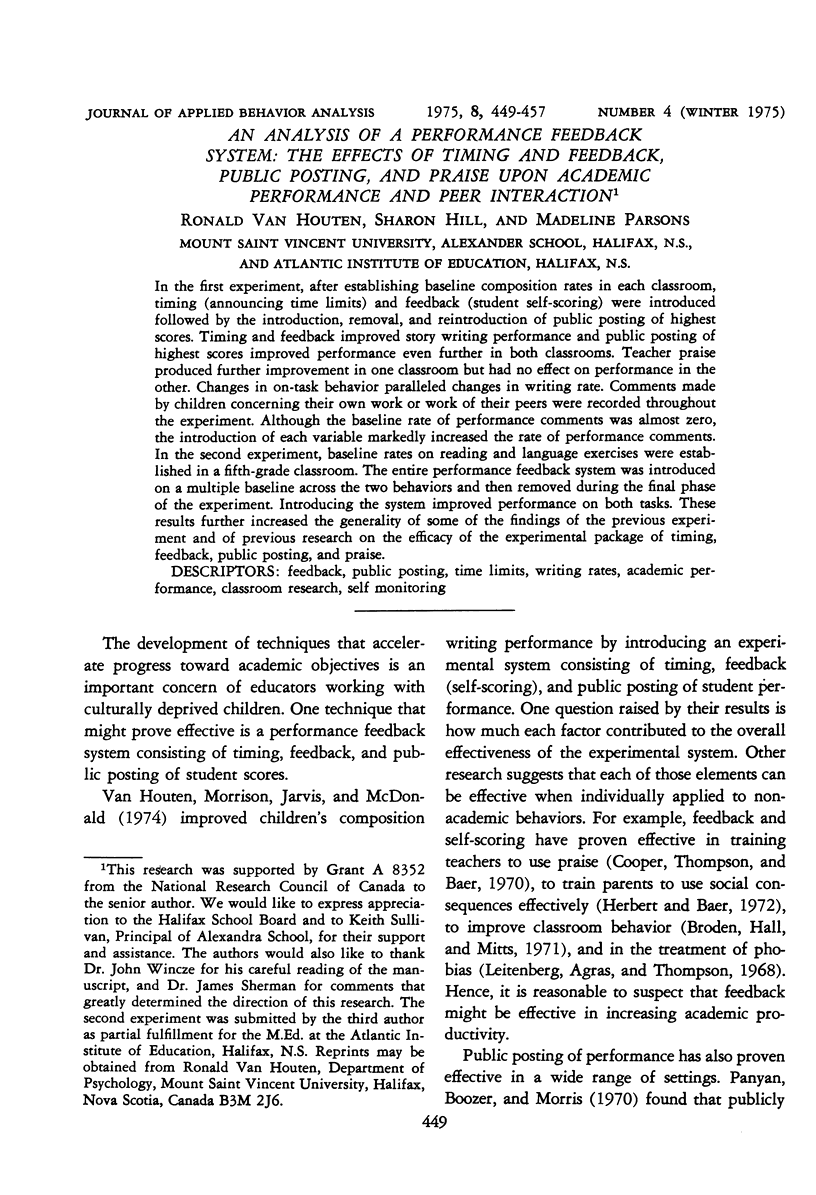
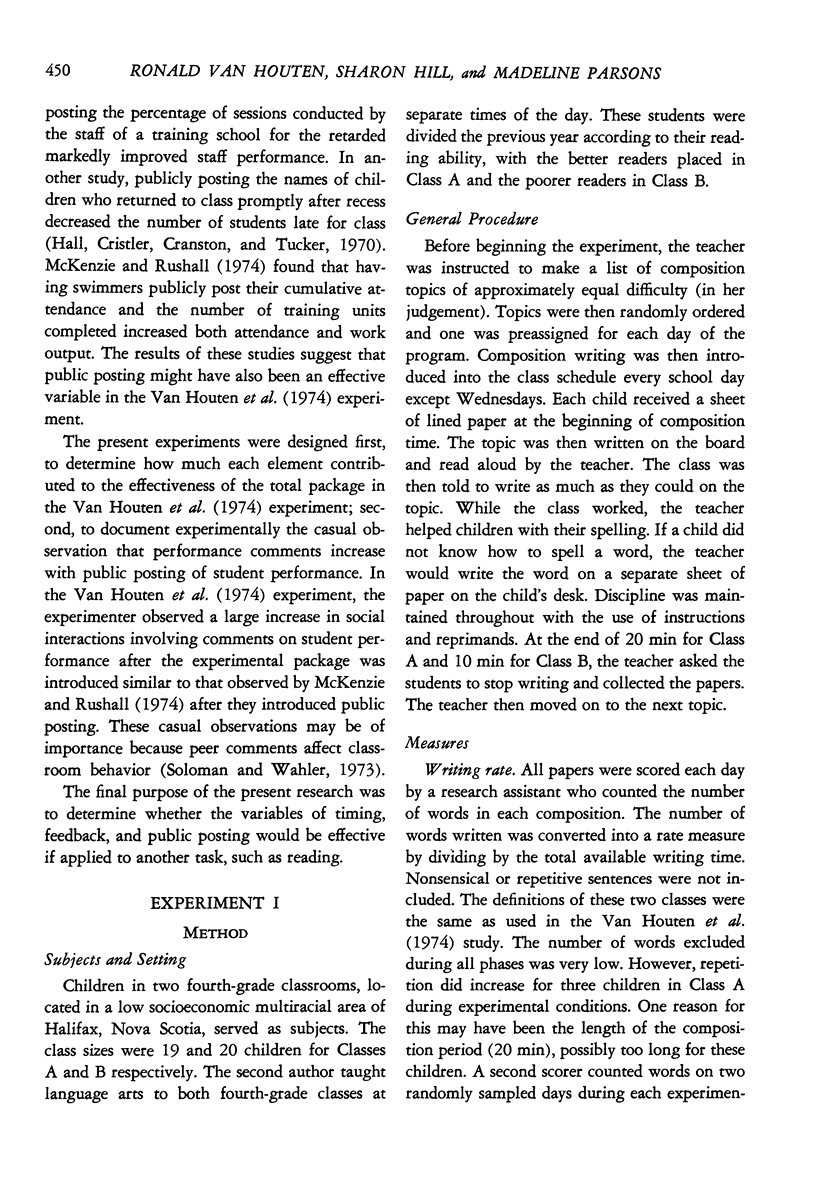
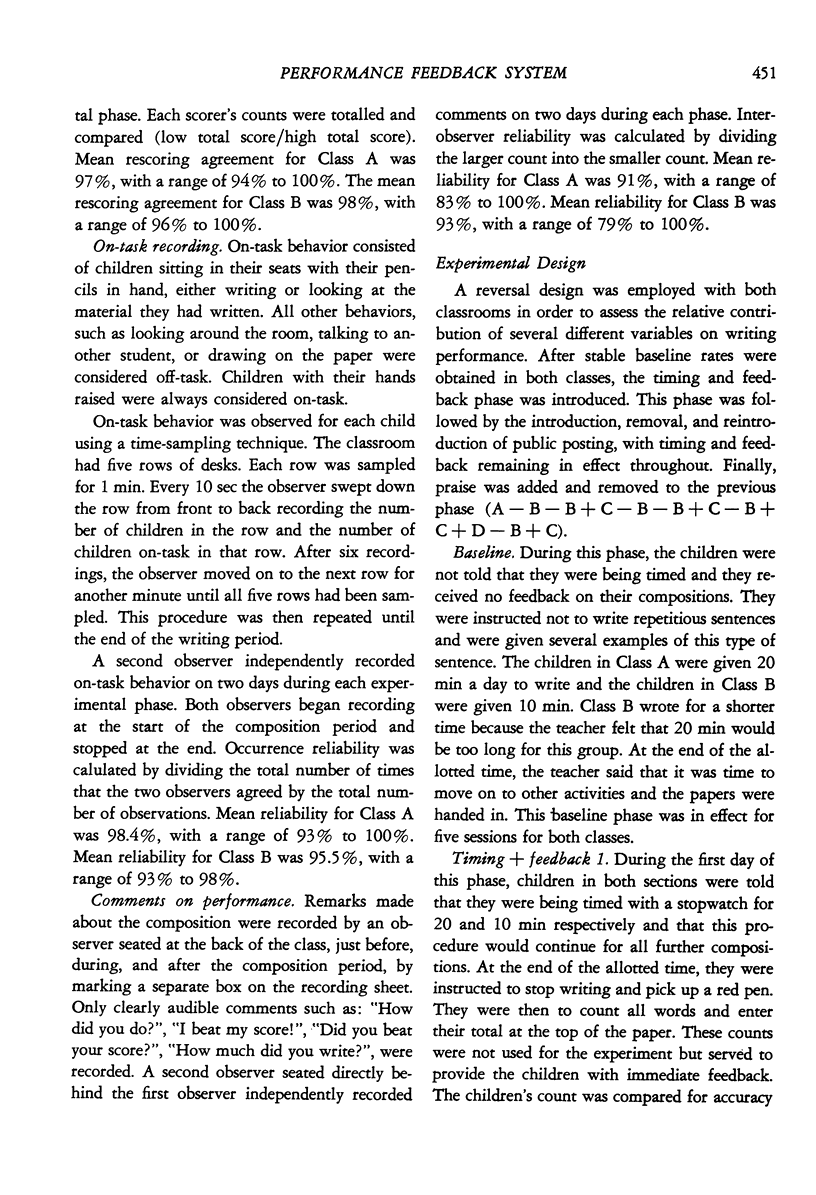
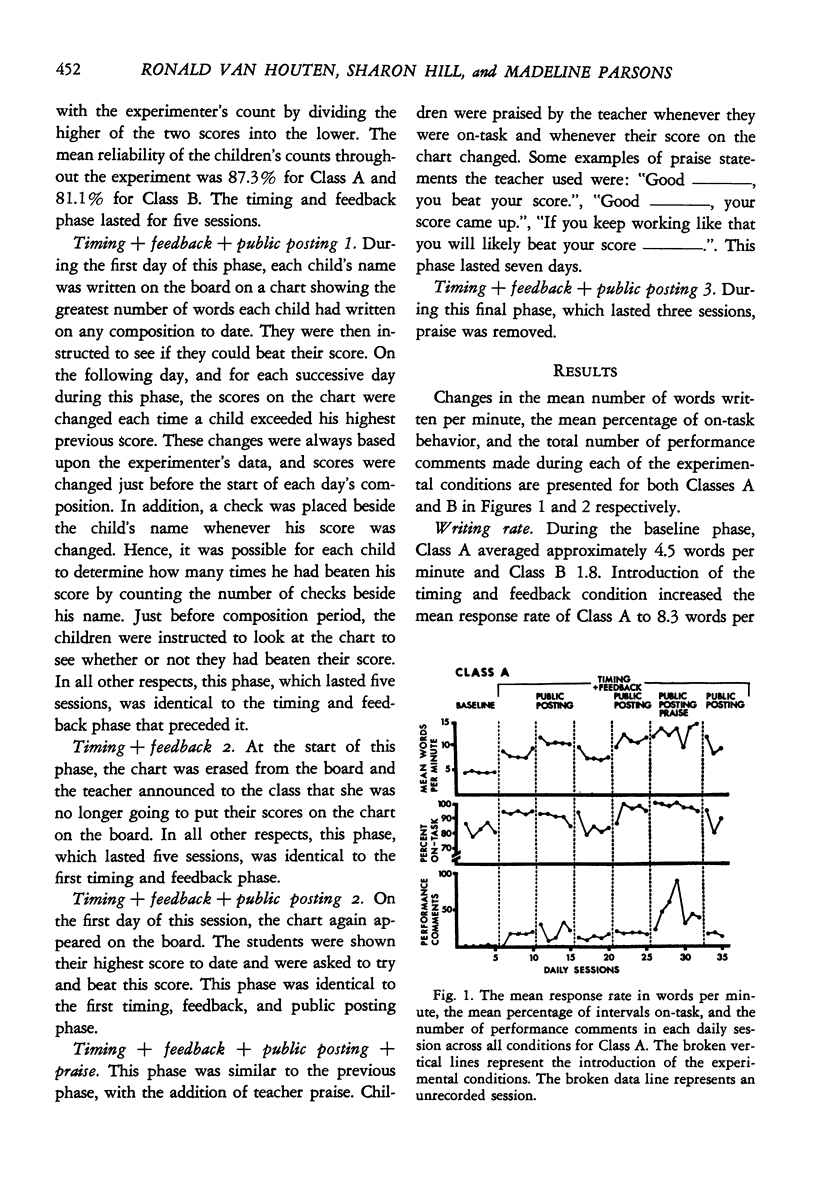
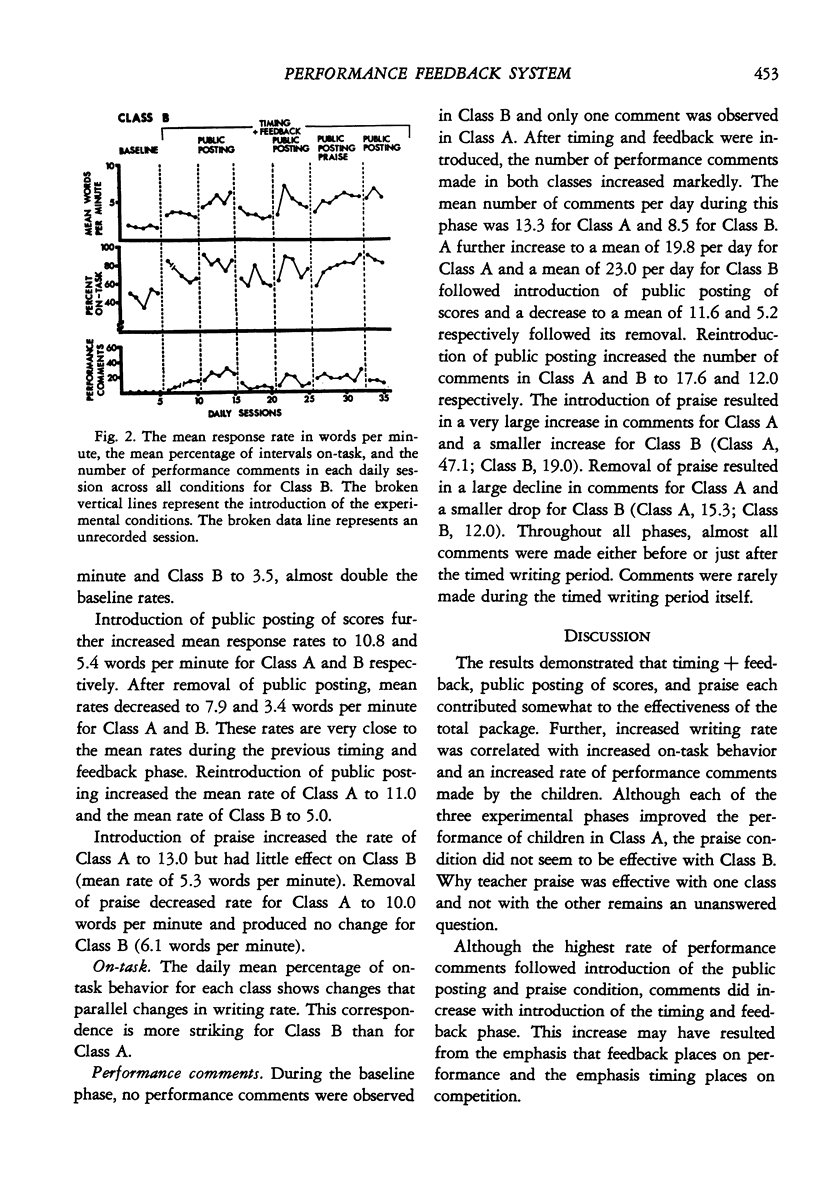
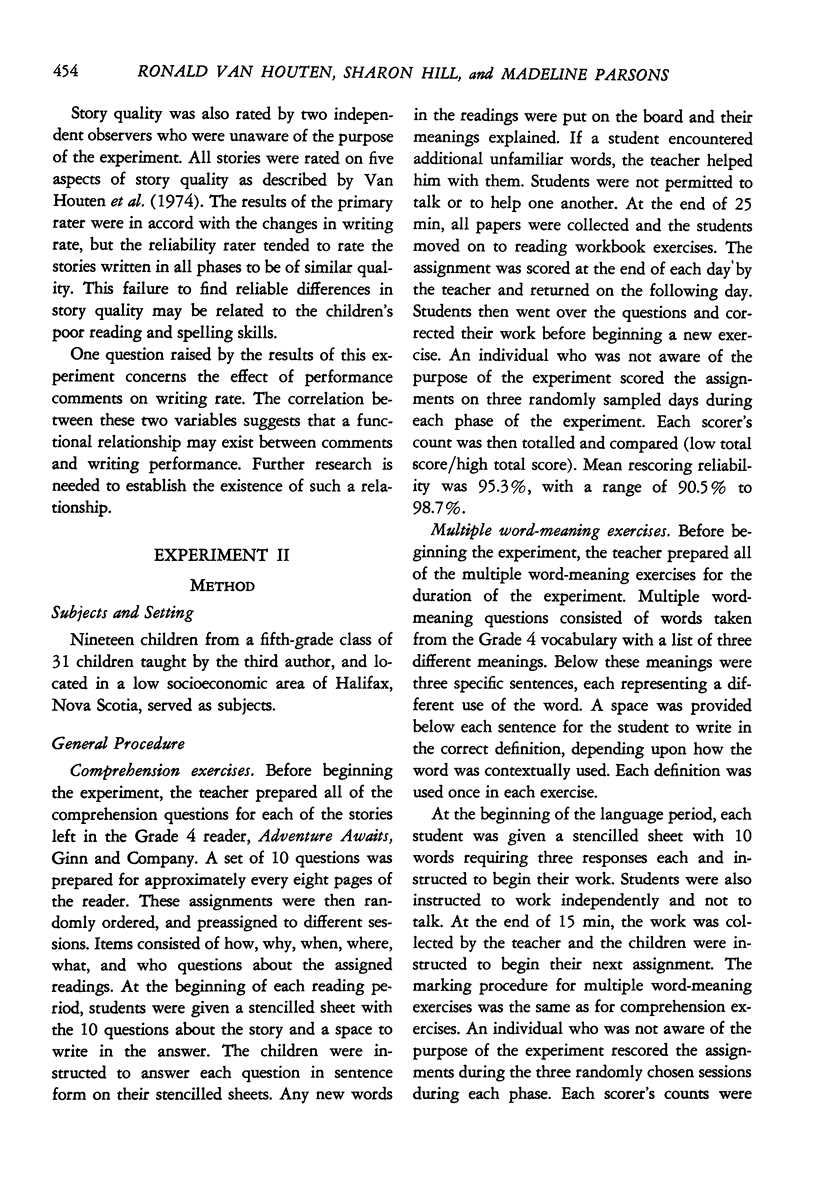
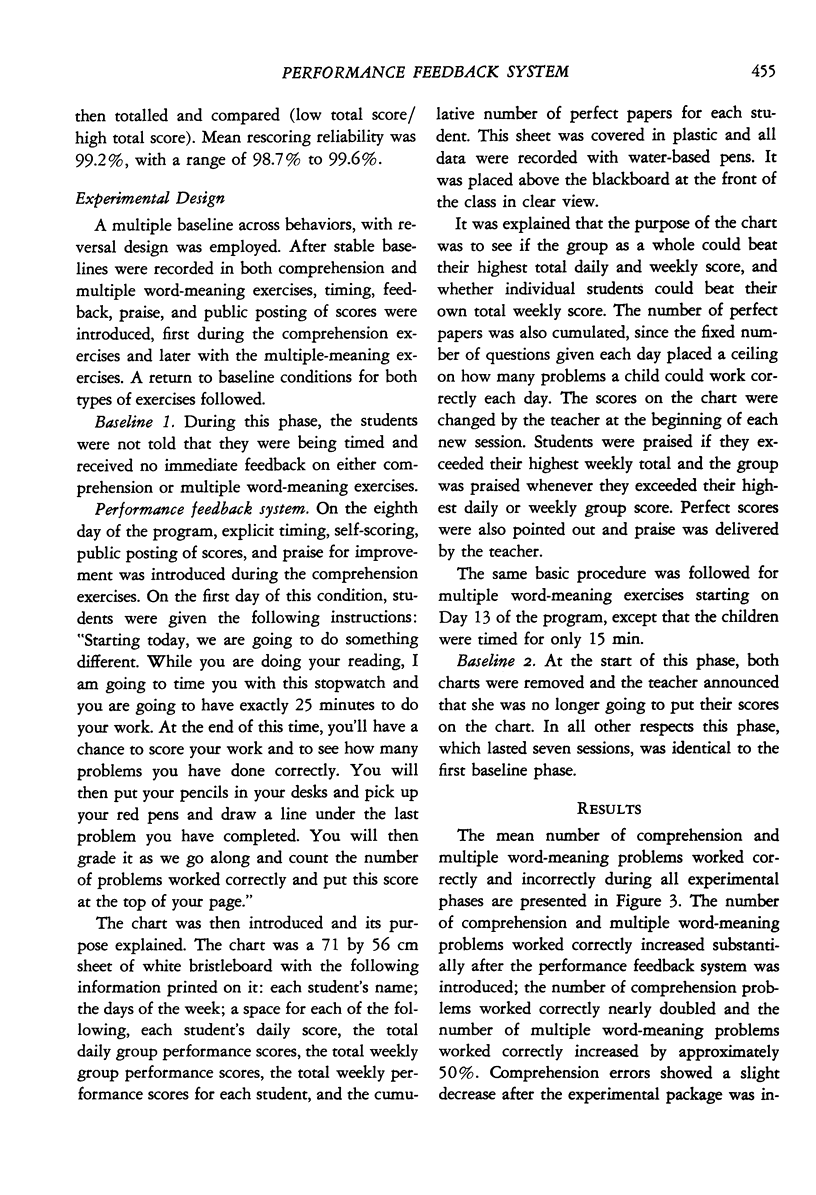
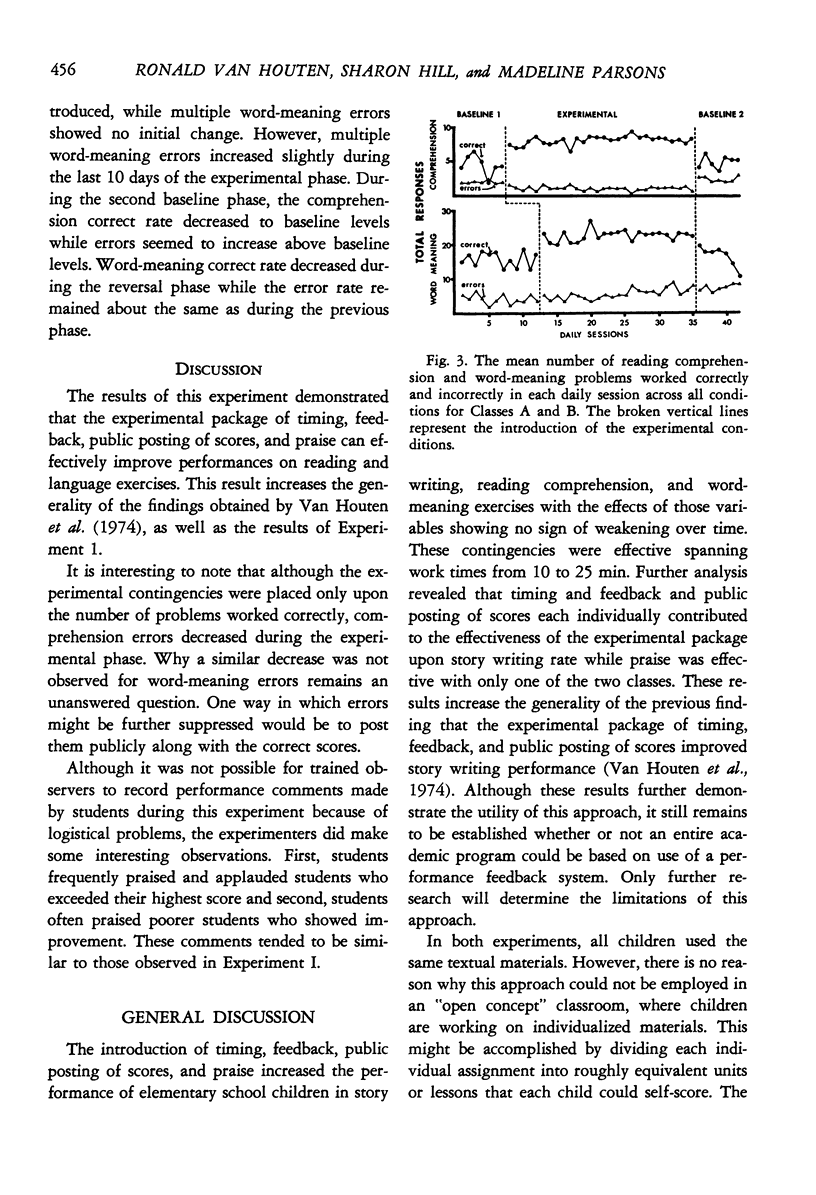
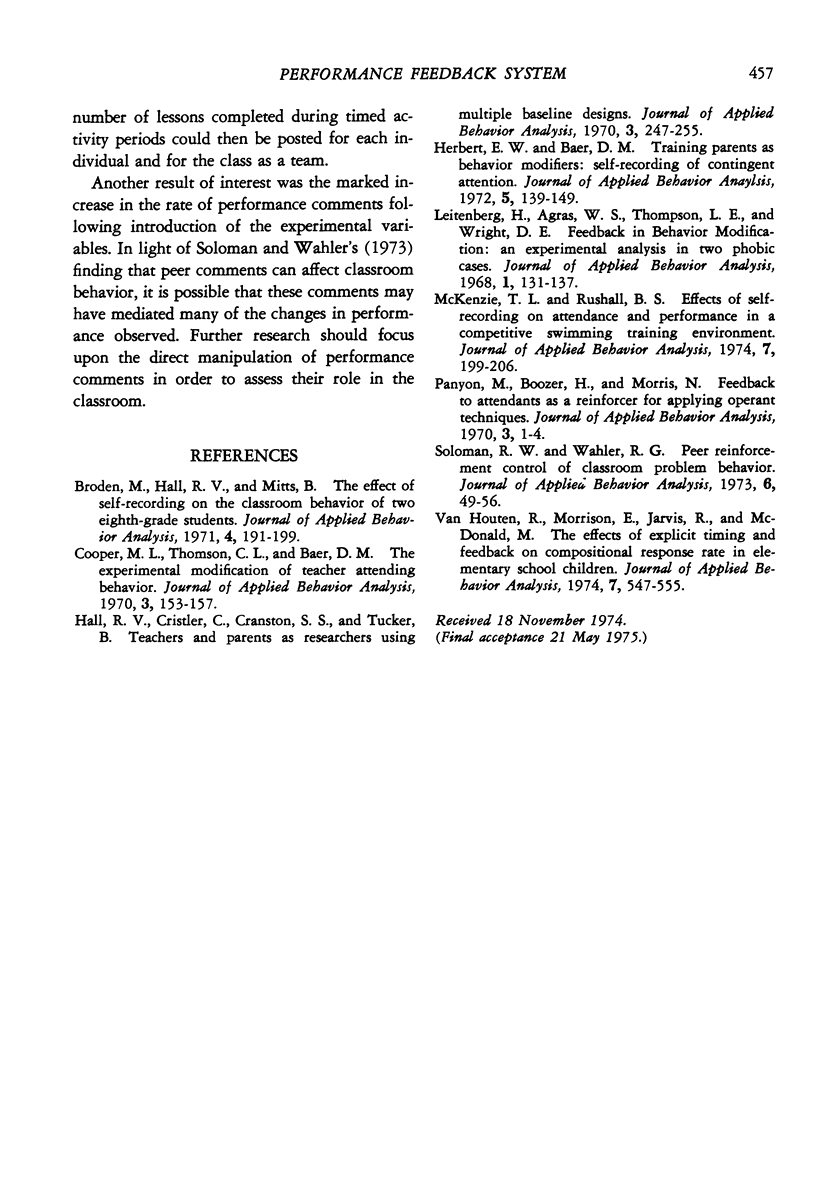
Selected References
These references are in PubMed. This may not be the complete list of references from this article.
- Broden M., Hall R. V., Mitts B. The effect of self-recording on the classroom behavior of two eighth-grade students. J Appl Behav Anal. 1971 Fall;4(3):191–199. doi: 10.1901/jaba.1971.4-191. [DOI] [PMC free article] [PubMed] [Google Scholar]
- Cooper M. L., Thomson C. L., Baer D. M. The experimental modification of teacher attending behavior. J Appl Behav Anal. 1970 Summer;3(2):153–157. doi: 10.1901/jaba.1970.3-153. [DOI] [PMC free article] [PubMed] [Google Scholar]
- Hall R. V., Cristler C., Cranston S. S., Tucker B. Teachers and parents as researchers using multiple baseline designs. J Appl Behav Anal. 1970 Winter;3(4):247–255. doi: 10.1901/jaba.1970.3-247. [DOI] [PMC free article] [PubMed] [Google Scholar]
- Herbert E. W., Baer D. M. Training parents as behavior modifiers: self-recording of contingent attention. J Appl Behav Anal. 1972 Summer;5(2):139–149. doi: 10.1901/jaba.1972.5-139. [DOI] [PMC free article] [PubMed] [Google Scholar]
- Leitenberg H., Agras W. S., Thompson L. E., Wright D. E. Feedback in behavior modification: an experimental analysis in two phobic cases. J Appl Behav Anal. 1968 Summer;1(2):131–137. doi: 10.1901/jaba.1968.1-131. [DOI] [PMC free article] [PubMed] [Google Scholar]
- McKenzie T. L., Rushall B. S. Effects of self-recording on attendance and performance in a competitive swimming training environment. J Appl Behav Anal. 1974 Summer;7(2):199–206. doi: 10.1901/jaba.1974.7-199. [DOI] [PMC free article] [PubMed] [Google Scholar]
- Panyan M., Boozer H., Morris N. Feedback to attendants as a reinforcer for applying operant techniques. J Appl Behav Anal. 1970 Spring;3(1):1–4. doi: 10.1901/jaba.1970.3-1. [DOI] [PMC free article] [PubMed] [Google Scholar]
- Solomon R. W., Wahler R. G. Peer reinforcement control of classroom problem behavior. J Appl Behav Anal. 1973 Spring;6(1):49–56. doi: 10.1901/jaba.1973.6-49. [DOI] [PMC free article] [PubMed] [Google Scholar]
- Van Houten R., Morrison E., Jarvis R., McDonald M. The effects of explicit timing and feedback on compositional response rate in elementary school children. J Appl Behav Anal. 1974 Winter;7(4):547–555. doi: 10.1901/jaba.1974.7-547. [DOI] [PMC free article] [PubMed] [Google Scholar]


